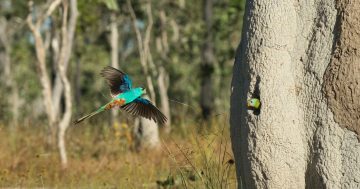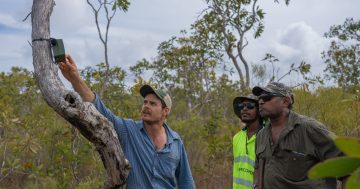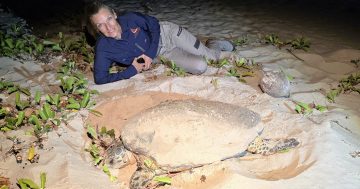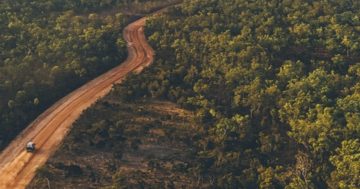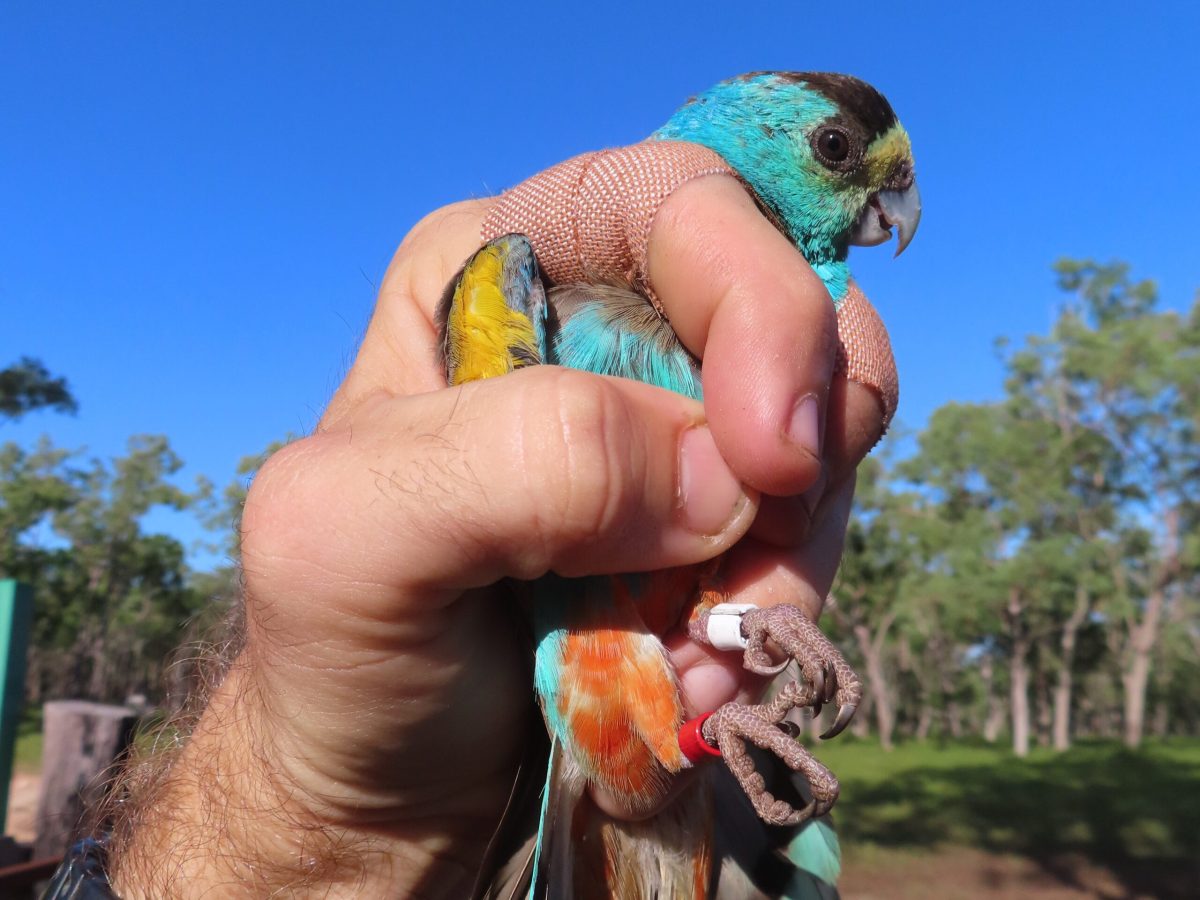
Protection of the endangered golden-shouldered parrot is a top priority of Artemis Station. Photo: Conservation Partners.
The Conservation Partners’ Artemis Nature Fund has reported a 100 per cent success rate in their recent golden-shouldered parrots (GSPs) nest protection trial.
The trial involved building electric barrier fencing around active GSP nests to protect them from predators following a largely unsuccessful nesting season in 2022-23.
The GSPs are an extremely endangered bird species found only on the Cape York Peninsula.
Artemis Station was once a stronghold for the species, but the population has dwindled to about 50 birds over the past 10 years.
“All the evidence suggests Artemis parrots will disappear completely if we don’t act now,” Artemis Nature Fund stated.
The setup consisted of two barriers: an outer layer to stop wandering cattle and an inner layer to deliver a powerful but harmless electric shock to any nest robbers.
“Every single nest where we installed electric barrier fencing throughout the 2022-23 nesting season was successful,” they stated.
“The fenced nests added 23 new parrots to the Artemis population.”
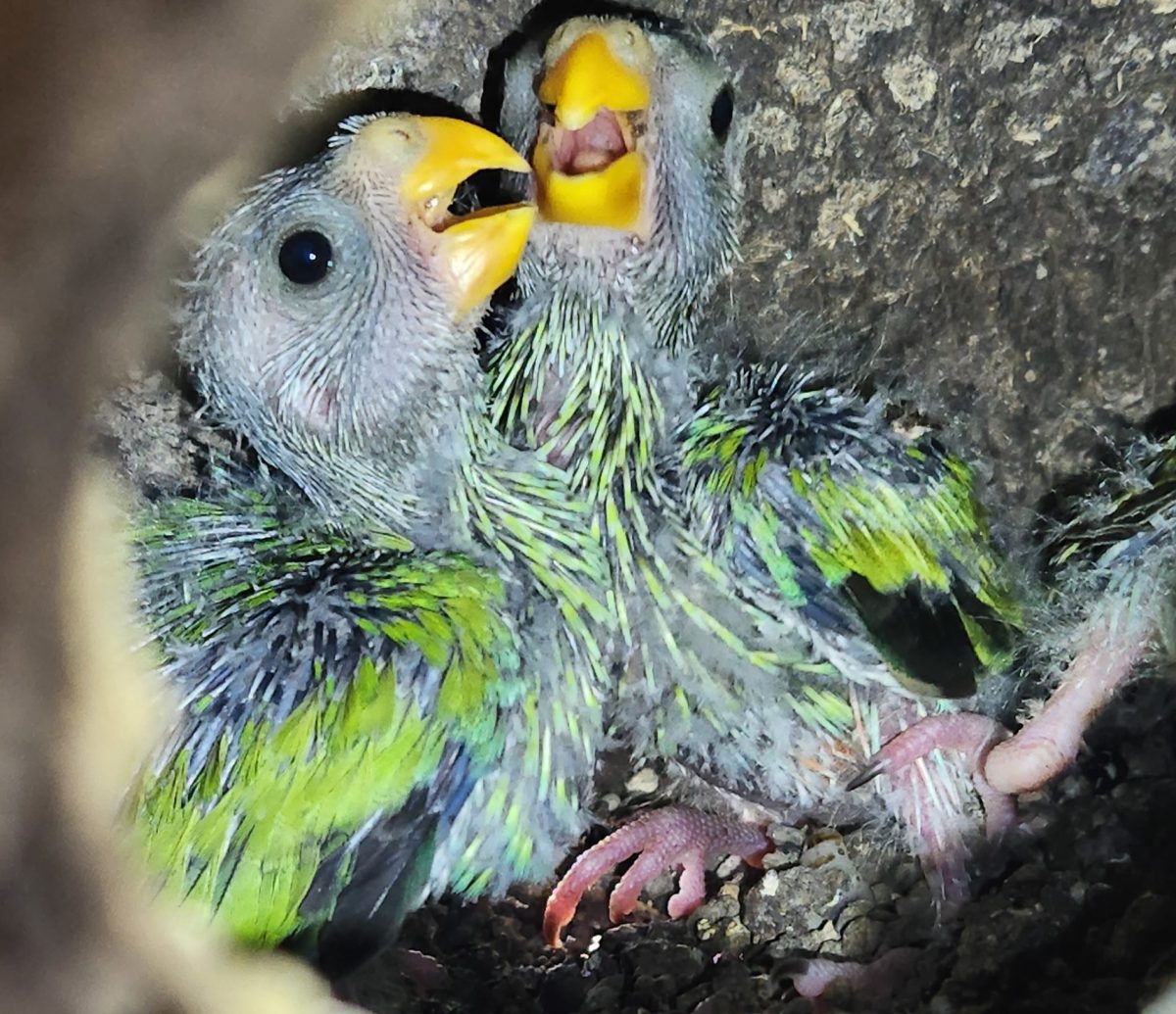
The Artemis Nature Fund believes they will find 20 active nests in 2024. Photo: Conservation Partners.
The GSP has many predators, such as goannas, butcherbirds, sparrowhawks, tree snakes and feral cats, and their impacts have only worsened with changes in the habitat.
An increase in tree and shrub density has allowed predators to grow in number and aided their ambush-hunting tactics.
“Basically, there are now more predators that are killing parrots more effectively. Parrots simply cannot see the predators in time to escape,” they stated.
The electric barrier fencing trial is one of the short-term solutions for securing and growing the population of GSPs.
Artemis Nature Fund explained that though the long-term stable solution was to restore the GSP’s habitat, it would take too long.
“It’s a risky strategy to rely solely on habitat restoration to reverse the decline of GSPs on Artemis. Restoring a significant amount of GSP habitat may take another five to 10 years,” they stated.
“During this time, the population may dwindle to such low numbers that recovery is impossible, so we need to secure and grow the remaining GSP population now.”
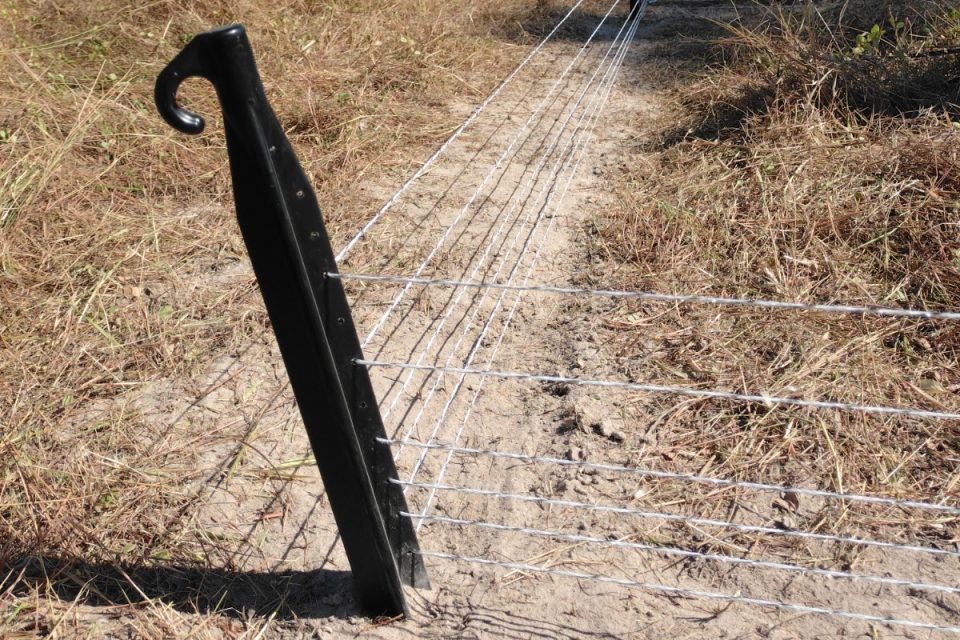
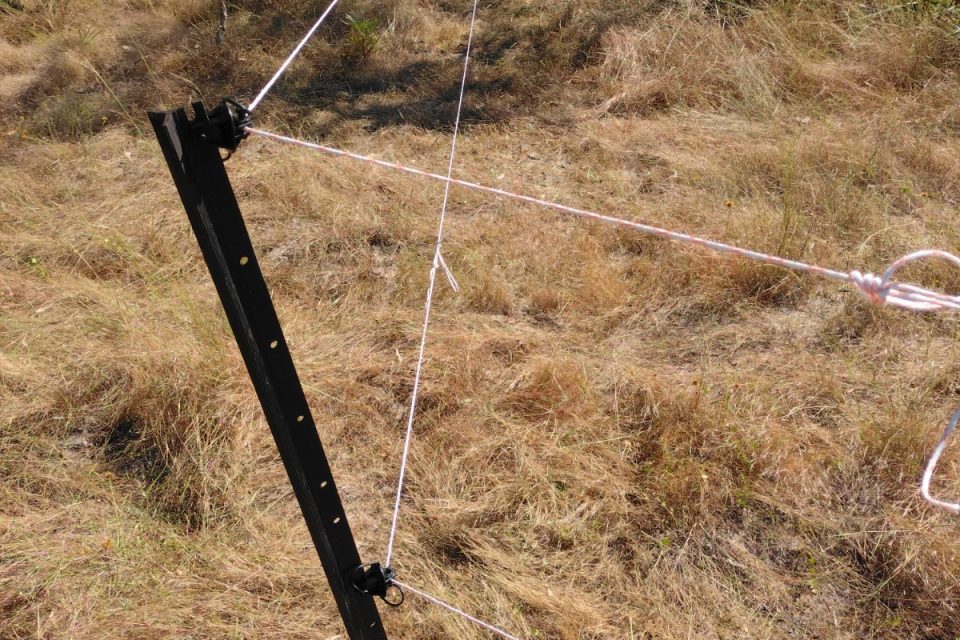
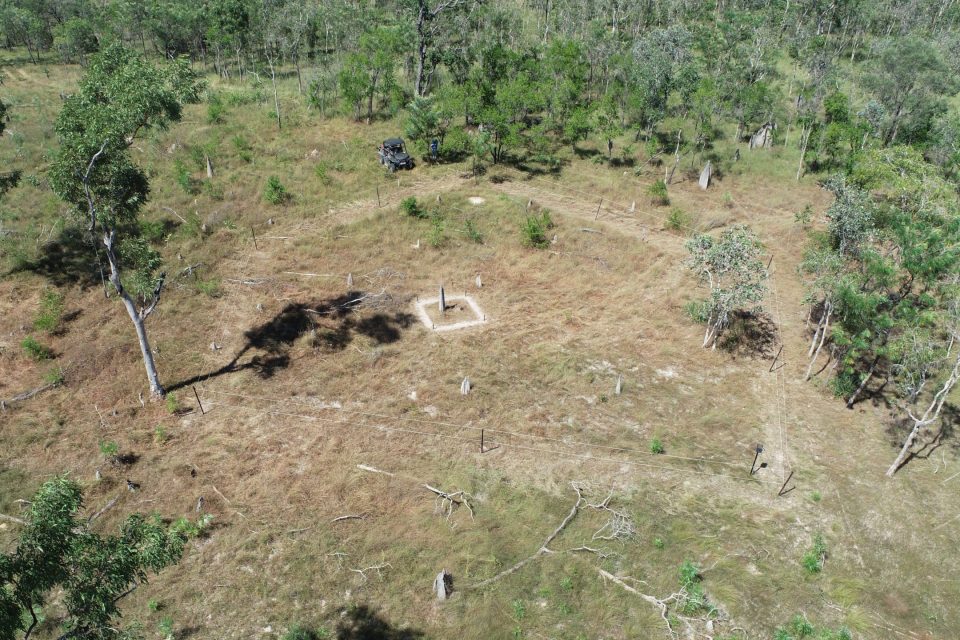
Following the success of the trial, the Artemis Nature Fund aims to install electric barrier fences around all active nests found at the station. In 2024, they believe they will find 20 active nests.
“Given the five eggs per nest average, we’re talking about being able to add 100 or so parrots to the population next year alone. This will be a significant outcome, not just for the Artemis population, but the species generally,” they stated.


